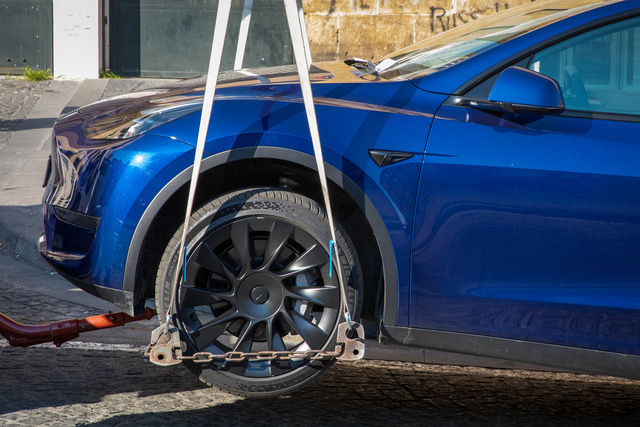If insurance companies cut corners on repairs, driver safety suffers. The California Department of Insurance just took formal action against Tesla Insurance, Tesla Insurance Company, and State National for violating California’s claims-handling laws. The state says they delayed payments, ignored consumers, and failed to investigate claims properly. If those violations continue, they could lose their licenses to sell insurance in California.
Tesla’s insurance arm operates much like a traditional insurer but is built around Tesla’s vehicles and data. Through entities like Tesla Insurance Company and Tesla Insurance Services, the company underwrites and sells auto policies directly to Tesla owners, using State National Insurance Company as a carrier partner in California. Tesla markets its policies as lower-cost coverage powered by real-time driving data from its cars — braking, speed, and Autopilot use — to adjust premiums. In practice, that means Tesla controls every stage of the process: it builds the car, collects the data, and decides what’s owed when the car is damaged. That kind of vertical control creates obvious conflicts when the same company that designed the car also determines how little it will pay to fix it.
The Department of Insurance laid out the core allegations:
· Egregious delays in responding to policyholder claims in all steps of the claims handling process, causing financial harm, out-of-pocket expenses, potential third-party liability exposure, and distress to policyholders;
· Unreasonable denials and delays in fully paying valid claims to consumers;
· Failure to conduct thorough, fair, and objective investigations of claims, thus denying consumers the insurance benefits they expect; and
· Failure to advise policyholders of their rights to have their claims denials reviewed by the department – a major consumer protection in California to make sure insurers are held accountable by their regulator.
Those findings track with widespread reports from Tesla policyholders who say it’s nearly impossible to reach a human being when a claim goes sideways. Drivers describe endless call center loops and unanswered messages — the kind of system that leaves damaged cars sitting for weeks or months while consumers are stuck without transportation. Under California law, insurers must acknowledge and begin investigating a claim within 15 days. The Department says Tesla repeatedly failed to meet that standard.
Unreasonable denials and failure to fully pay valid claims aren’t just financial disputes — they’re safety issues. They put repair shops in an impossible position: absorb the loss, or send a vehicle — and a human being — back on the road with an inadequate, potentially dangerous repair.
While Tesla Insurance may be the latest and most visible example, these practices are not unique to Tesla. The same patterns — delayed inspections, underpayments, and coercive claims practices — are pervasive across the auto insurance industry. As vehicles become more technologically complex and less mechanically driven, insurers face higher repair costs and more pressure to control payouts. That financial pressure often gets passed down to the repair floor, where safety decisions are made in dollars, not engineering.
This matters for every driver. When insurers delay or underpay claims, safe repairs are compromised. Most people don’t realize how much control insurance companies have over what a body shop can or can’t do. They dictate labor rates, parts, and procedures — and those decisions affect the structural integrity of the vehicle you drive your family in.
When insurers short-pay, shops are forced to choose between doing the repair right or eating the cost. That’s not a sustainable or safe system.
In its press release, the Department said:
“The actions allege that, despite being repeatedly warned by the Department of Insurance, the Tesla Companies and State National instead chose to abandon their responsibility to consumers and persist with their non-compliant claims-handling practices, placing profits above people and flouting the law with impunity.”
Read the full official enforcement notice here: California DOI Press Release on Tesla Action.
The hope is that this regulatory action will make a difference. But experience shows it often doesn’t. Unless complaints continue to be filed and enforcement expands beyond one company, the same problems — delay, denial, and unsafe repairs — will persist across the industry. Safe repairs require fair claims practices. California’s latest action is a step, but it shouldn’t be the last one.
